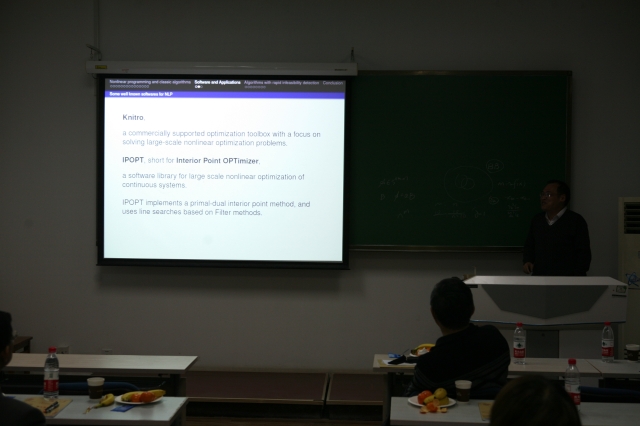Codimension-two bifurcations in the reaction-diffusion equations and applications to chemical reaction system

Lecture :Yongli Song , Hangzhou Normal University
Time:Dec 2 2016(Friday), 15:30-16:30
Place: The 7th lecture room
Abstract: In this talk, we consider the codimension-two bifurcation arising from the reaction-diffusion equations. It is a degenerate case and where the characteristic equation has a pair of simple purely maginary roots and a simple zero root. First, the normal form theory for partial differential equations (PDEs) with delays developed by Faria is adopted to this degenerate case so that it can be easily applied to Turing-Hopf bifurcation. Then, we present a rigorous procedure for calculating the normal form associated with the Turing-Hopf and spatial resonance bifurcations of PDEs. We show that the reduced dynamics associated with Turing-Hopf bifurcation is exactly the dynamics of codimension-two ordinary differential equations (ODE), which implies the ODE techniques can be employed to classify the reduced dynamics by the unfolding parameters. Finally, we apply our theoretical results to an autocatalysis model governed by reaction-diffusion equations; for such model, the dynamics in the neighbourhood of this bifurcation point can be divided into six categories, each of which is exactly demonstrated by the numerical simulations; and then according to this dynamical classification, a stable spatially inhomogeneous periodic solution has been found.